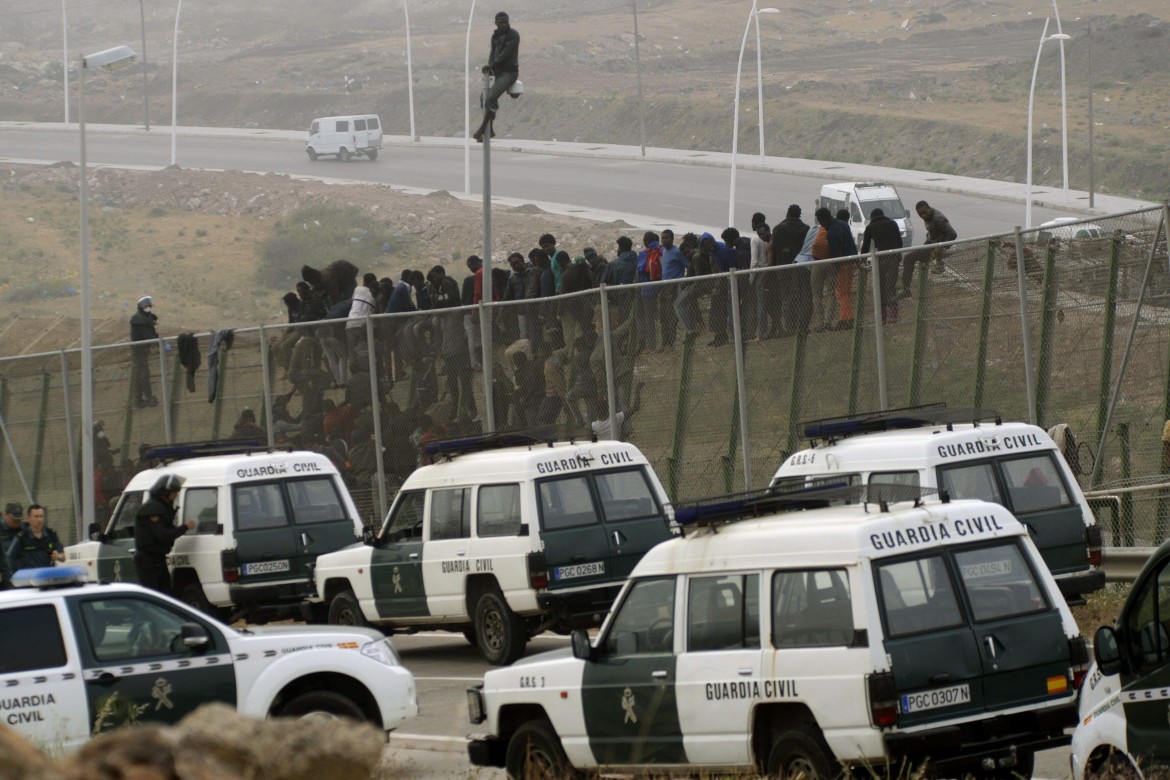Analysis
The rights of Sub-Saharan migrants, crushed between Morocco and the EU
Morocco uses arrests, deportations and racial profiling to block refugees and migrants. For their efforts, Brussels rewarded them with €140 million.

At the 11th World Policy Conference held during the weekend in Rabat, Morocco, Spanish Foreign Minister Josep Borrell approved €140 million from EU funds destined for Morocco, for the specific purpose of helping in the “fight against illegal immigration,” as requested by Spanish Prime Minister Pedro Sanchez during the summit of the heads of government of the European Union held in Brussels on Oct. 17 and 18.
Borrell underlined that everything Morocco does to protect its borders and deal with migration flows is expensive—and that, since this has value for Europeans (Morocco being a “preferred partner” of Europe in managing migration), it makes sense for them to contribute to these costs. He pointed to the examples of Libya and Turkey to support his claims. Borrell’s comments once again revealed—if anyone still doubted it—that migrant people and their rights have become the subject of quid-pro-quos and economic exchanges between countries.
Morocco has assumed a central role in controlling the flow of departures for the migrants originating from the sub-Saharan region, especially since—after the blocking of the Balkan route and Italy’s increasingly closed-off policy—Spain has become the main migration gateway to Europe.
According to data from the International Organization for Migration, 42,500 people have reached Europe passing through the Iberian peninsula since the beginning of the year, while 433 people died trying. The Moroccan government reports it has prevented 54,000 people from reaching Europe. “Migrants are forced to resort to increasingly dangerous contacts and means in order to escape the ever harsher policy of both Europe and Morocco,” said the president of the Moroccan Association for Human Rights (AMDH), Omar Naji.
In their report Coûtes et blessures, published a few days ago in Rabat, the Anti-racist Group for the Support and Defence of Foreigners and Migrants (GADEM) focused attention on a practice that is becoming dangerously widespread: the arbitrary arrest and relocation of sub-Saharan migrants. Between July and September, GADEM’s data showed, 6,500 people have been arrested in the northern border areas, mainly near Ceuta and Melilla, the Spanish enclaves in Moroccan territory. According to the AMDH, this number underestimates the phenomenon: the organization claims it has counted 4,700 detained since August in the city of Nador alone.
“They’re arresting blacks”—this is how a man from Conakry in Guinea, interviewed by GADEM, described the situation. These are the racial profiling practices of the Moroccan police. Arrested on the streets, in shops, and even at their homes, people are taken to the police stations and subjected to fingerprinting. “The practices of detention, identification and deportation are affecting all blacks,” GADEM stresses, adding that “their documents are not actually checked.”
The police are also arresting minors, asylum seekers, and even people already holding a residence permit. Without giving them any information, the people are handcuffed and put on buses heading to Tiznit, Beni Mellal, Agadir, Casablanca, Errachidia and even Dakhla, 1,950 km from Tangier, as part of forced relocations conducted in precarious conditions, without food or rest stops, which ultimately leave them far away from population centers. Furthermore, there is no shortage of violence and thefts committed by the law enforcement agencies.
As GADEM’s report points out, this is a direct consequence of European requests. For its part, the government in Rabat seems determined to exploit the situation for its own benefit as much as possible. On Oct. 21, more than 350 people tried to climb the high fences of Melilla and enter Spanish territory, and this was immediately used as a pretext by Rabat to reaffirm its commitment to the fight against illegal immigration.
In line with the policy that is being implemented in collaboration with the EU, the Moroccan authorities have announced that they will deport all sub-Saharan migrants who took part in the events in Melilla: 141 people who were arrested during the so-called “attack,” and 55 of the 209 migrants who managed to cross over into Spanish territory, but were then sent back by the Spanish government.
Originally published at https://ilmanifesto.it/i-diritti-dei-migranti-subsahariani-schiacciati-tra-marocco-e-ue/ on 2018-11-01
